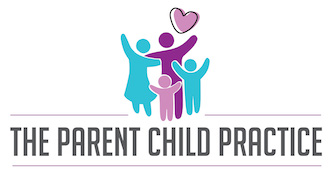An article was recently posted on USA Today about Kendall Jenner’s nude photos being leaked and Twitter body-shaming her for being too skinny. According to TMZ, the pictures were from a photo shoot and they were meant to be included in the upcoming book “Angels” and the photos were released without the photographer’s permission.
Immediately after the photos were publicly leaked, Twitter users bombarded the twitter platform with memes and comments regarding their feelings of disgust about Kendall’s body. Although Kendall nor the photographer have commented about the recent twitter activity, it is a reminder of the power of social media (e.g., Twitter, Instagram, Facebook, etc) because it is such a wide reaching platform. It is also a reminder of how cyber bullying can be so harmful to its victims.
As parents it is hard to know how to protect our children from the dangers of cyber bullying. When I talk with others about childhood bullying, I always say, “When we were children at least the bully couldn’t follow you into your house.” Social media and the internet have made it possible for bullying to occur 24 hours a day, 7 days a week. It has also made it possible for people to join in bullying and they may not even personally know the victim.
When coaching parents about how to help their child who is being bullied I share some of the following tips:
Monitor their online activity.
Keep family computers in public areas where you can supervise kid’s activity.
Modify privacy settings on electronics and use monitoring programs for computers and phones such as www.NetNanny.com or www.MyMobileWatchdog.com. These programs allow you to do things such as view text messages, view call logs, or block applications or websites.
Have the passwords for all social media accounts and, for teens, promise that you will use them only in an urgent situation or follow your teen’s social media account(s).
Be aware of the possible signs that your child is being bullied.
I coach parents to look for the following changes in their children and when they identify these changes, I encourage parents to have an open conversation about what they are observing so that they can give their child a space to share their problems:
Changes in your child’s personality.
Your child is becoming easily agitated or irritable.
Your child is becoming withdrawn or sullen or has feelings of hopelessness.
They are displaying poor self-care or hygiene management (this includes changes in sleep or diet).
Your child is significantly increasing or decreasing use of electronic devices and hiding devices when you or others come around so you can’t see the activity.
Of course these signs are not clearly indicative of bullying; however, it is important that you inquire about bullying as a possible motive or precipitant for these behaviors.
If your child is experiencing cyber bullying help your child take action.
Inquire about the bullying and get specific details about the bullying, the platform(s) where the bullying is occurring, and the individual(s) involved in the bullying. Problem solve with your child about ignoring the bully or bullies online (i.e., blocking them) and talk with them about incidents like Kendall Jenner and the importance of ignoring inappropriate behavior in an attempt to let it “die down” and ways to cope so that it does not “get the best of them.”
Take screenshots of all of the bullying activity and keep a record of the bullying. Most definitions of bullying are that it is a repeated behavior and so you want to document and record the frequency of this behavior.
Once you have recorded or documented the bullying then you may have to contact the school about the bullying if it is excessive or highly inappropriate since most schools have policies about bullying and cyber bullying. I also encourage parents and their children to report the incident(s) to the social media site(s) as offensive content. In some cases, families may even have to contact the authorities and they are encouraged to review the state law to see how bullying is handled.
For some children/teens they may need to speak with a licensed mental health professional about the cyber bullying and they may need assistance with any accompanying anxiety or depression or suicidal thoughts. A great place to find therapists is Psychology Today and you can search for a therapist by location and specific concern(s).
My action item for you today is to talk with your child about cyber bullying and make sure they have a proactive plan about how to handle themselves. Don’t wait for the problem to occur. Educate them about internet safety. Also, remember that even younger children are subject to being victims of cyber bullying. If your child is active on any electronic/online platform (e.g., video games with online partners) make sure to talk to them about cyber bullying. My motto to parents is, “be prepared, be aware.”



